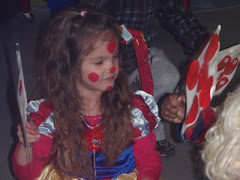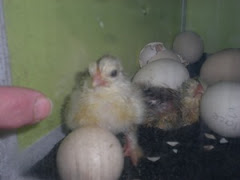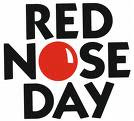Wednesday, 8 December 2010
Christmas Quiz
Answer the following 15 questions correctly and win a Cadbury's selection box.
1.How many days are there in December?
2.What date is Christmas Eve?
3.Can you name 3 of Santa’s reindeers that begin with D?
4.In the song 12 days of Christmas, what is given on the 7th day?
5.What is the biggest selling Christmas single of all time?
6.What was Scrooge’s first name?
7.Which character said “God Bless Us,Everyone”?
8.Who banned Christmas in England between 1647 and 1660?
9.What is the popular name for little baked sausages wrapped in rashers of streaky bacon?
10.Traditional in Germany at Christmas, what sort of food is stollen?
11.In Victorian England what people were popularly called robins because of their red uniforms?
12.Who are the four ghosts in Charles Dickens?
13.Who were Balthazar, Melchior and Caspar?
14.In the TV show "The Simpsons", who or what is Santa's Little Helper?
15.What do we use, traditionally, for the nose on a reindeer?
Good luck everyone!
Sunday, 5 December 2010
Winner of " I'm a celebrity "
Friday, 3 December 2010
School Open
Thursday, 2 December 2010
School Closed
Wednesday, 1 December 2010
School Open
Sunday, 28 November 2010
Take care
Tuesday, 16 November 2010
Anti- Bullying Week
All the staff at John Perry Primary take the issue of Bullying very seriously.
Help us to help the children of John Perry achieve the education they deserve in a safe and pleasant environment.
Thank you
Tuesday, 14 September 2010
Year 6 World War Two

For almost six years, from 1939-1945 Britain fought the toughest war it had ever experienced. During World War Two every person, business and every service was involved.
Year Six are learning about the cause and outcome of World War Two.
They will also learn about 'The Blackout', 'The Blitz', 'Evacuation', 'Rationing' and many other wartime events.
Tuesday, 7 September 2010
Monday, 5 July 2010
Old Dagenham Park

Year 5 went to Old Dagenham Park this week where they had a great time, with the assistance of the park rangers, hunting for 'mini beasts' trying some activities such as orienteering and generally enjoying the 'great outdoors'! The park has a wide range of activities for the children to enjoy. It has tennis courts, football pitches, a BMX track and a children's playground. Well worth a visit!
New Arrivals in RJB
Saturday, 5 June 2010
June 2010

The rose is the flower for the month of June.
According to the Georgian calendar, which is used over most of the world today, June is the sixth month. On the Roman calendar, it was considered the fourth month and had only 29 days. Julius Ceasar gave the month 30 days in 46 B.C., when he reformed the Roman calendar.
Spring ends and summer begins around June 20, 21, or 22 in the Northern Hemisphere. It's the time that the flowers are beautiful. It is especially the month for roses. In the Southern hemisphere, winter begins during June, and it brings cold, rainy weather to this part of the world.
A June quotation.
Then let us, one and all, be contented with our lot;
The June is here this morning, and the sun is shining hot;
Oh! let us fill our hearts up with the glory of the day,
And banish ev'ry doubt and care and sorrow far away.
Thursday, 6 May 2010
Thought for the day!
1.Egypt's Great Pyramids.
2.Taj Mahal.
3.Grand Canyon.
4.Panama Canal.
5.Empire State Building.
6.St Peter's Basilica.
7.China's Great Wall.
While gathering the votes, the teacher noted that one of the students had not finished her paper yet.So she asked the little girl if she was having trouble with her list.
The girl replied, " Yes, a little. I couldn't quite make up my mind because there are so many".
The teacher said, " Well, tell us what you have and maybe we can help".
The girl hesitated, then read, " I think that the 'Seven Wonders of the World' are,
1. To See.
2. To Hear.
3. To Touch.
4. To Taste.
5. To Feel.
6. To laugh.
7. To Love.
The room was so quiet you could have heard a pin drop.
This is because, the things we overlook as simple and ordinary and that we take for granted are truly wondrous! A gentle reminder- that the most precious of things in life cannot be built by hand or bought by man.
Thursday, 29 April 2010
The British Museum

Year 3 had a fantastic time at The British Museum on Wednesday 28th April 2010. They observed and studied Greek and Egyptian artefacts. This was to correspond with their history topic this year.
They also got to look at some amazing Greek pots which have inspired them to go on and make their own designs. They will be making their pots from clay.
Tuesday, 20 April 2010
St George's Day

JP, waving his St George flag!
St George's day is on the 23rd April. It is England's national day.
St George is the patron saint of England. His emblem, a red cross on a white background, is the flag of England,and part of the British flag. St George's flag was adopted by Richard The Lion Heart and brought to England in the 12th century.
Like England, every country in the UK has it's own patron saint who in times of great peril is called upon to help save the country from it's enemies.
St George was a brave Roman soldier who protested against the Roman's torture of Christians and died for his beliefs. Saint George is popularly identified with England and English ideals of honour, bravery and gallantry. One of the best-known stories about St George is his fight with a dragon.
Interesting fact!
Shakespeare was born on 23rd April 1564 and also died on the same day in 1616.
Sunday, 18 April 2010
Saturday, 3 April 2010
Easter Quiz
1st prize in the KS1 quiz went to Ella Goodspeed in 2CJ. Well done Ella!
1st prize in the kS2 quiz went to Connie Richardson in 6AB. Well done Connie!
The answers to the KS1 quiz are=
- cow.
- A person that rides a bike.
- He kissed her.
- Pail of water.
- 10
- Pig.
- Cat.
- 8
- Red, amber and green.
- Green.
- Red.
- Gary.
- Red, white and blue.
- Jane Seymour
- 90
- 30
- 60km
- 1.2
- A simile.
- A
- -40
- Venus
- 720o
- 0
- A drey.
- Ozone
- The Small Pox vaccine.
Keep looking on the John Perry Blog for another quiz soon.
Monday, 15 March 2010
KS1 Easter Quiz!

All children in KS1 can enter this Easter quiz. If you answer all the questions correctly you will win an Easter egg.
Good luck!
- What is the name of the farm animal that gives us milk to drink?
- What is a cyclist?
- In 'snow white', what does the prince do to wake her up?
- In the nursery rhyme ' Jack and Jill', what do Jack and Jill go up the hill to fetch?
- 5+5=
- What animal is pink and has a curly tail?
- What animal purrs and eats fish?
- 10-2=
- What are the colours on a traffic light?
- What colour on the traffic light means 'GO'?
- What colour means 'STOP'?
- What is 'Spongebob's' pet snail called?
KS2 Easter Quiz!

Time for another quiz!
Answer the following 15 questions correctly and you will win an Easter Egg!
- What colours are in the Union jack?
- Can you name the third wife of King Henry VIII?
- What is the product of 15 and 6?
- What is 1/5 of £150?
- If a bus travels at 80km/h, how far does it travel in 45 minutes?
- What is 4% of 30?
- Her hands were as Cold as ice. What is the red part of the sentence called?
- What is the correct spelling? a, Necessary. b, Neccesary. c, Nessesary.
- Which temperature has the same value in both Centigrade and Farenheit?
- Which planet in our solar system is closest in size to Earth?
- What is the sum of the internal angles in a hexagon?
- What is the most common blood type?
- What is the home of a squirrel called?
- If oxygen is O2, what is O3?
- What did the famous scientist Edward Jenner invent?
Sunday, 14 March 2010
Mother's Day

Happy Mother's Day
Also known as 'Mothering Sunday', it is a time when children pay respect to their Mothers. Children often give their Mothers a gift, flowers and a card.
It is on a different date every year because it is celebrated on the fourth Sunday in 'Lent'.
I do hope that all 'mums' have a wonderful day!
Sunday, 28 February 2010
Sunday, 7 February 2010
Facts about February

The Snowdrop
February, along with January, was introduced onto the Roman calendar by Numa Pompilous when the calendar was extended from ten to twelve. The word February comes from the word ' Februa' which means cleansing or purification, and reflects the rituals taken before spring.
In Shakespeare's time about 400 years ago, the second month of the year was called 'Feverell'. In Isaac Newton's time one hundred years later it had become 'Februeer'. The modern name, February, is only about a hundred years old.
12 - 14 February were traditionally said to be 'borrowed' from January. If these days were stormy, the year would be favoured with good weather: but if fine, the year's weather would be foul. The last three days of March were said to be borrowed from April.
The flower called snowdrop ( pictured above) appears in February and is a symbol of hope. According to legend, the snowdrop became the symbol of hope when Adam and Eve were expelled from the Garden of Eden. When Eve was about to give up hope that the cold winters would never end, an angel appeared. She transformed some of the snowflakes into snowdrop flowers, proving that the winters do eventually give way to the spring.
14th February is St Valentines Day.
Each year in Britain, we spend around £503m on cards, flowers, chocolates and other gifts for Valentine's Day. Traditionally these were sent anonymously, but now-a-days we often make it clear who is sending each 'Valentine'.
16th February is Shrove Tuesday, this marks forty days before Easter.
In the UK, Shrove Tuesday is also known as Pancake Day (or Pancake Tuesday to some people) because it is the one day of the year when almost everyone eats a pancake.
17th February is Ash Wednesday.
Ash Wednesday is a Christian festival. It marks the beginning of six and a half weeks of repentance, fasting and abstinence in preparation for the most important Christian festival of Easter.
Sunday, 24 January 2010
January 2010 Quiz

Can you answer the following 15 questions correctly?
You all did so well with the November quiz, so I thought i'd give you another to try this month!
This quiz has questions about The United Kingdom.
- What is the name of the Prime Minister of this country?
- In what year did The battle of Hastings take place?
- What was the year of The great fire of London?
- In which year did England win the world cup?
- What countries make up The United Kingdom?
- What is the official name of The UK?
- Name the capital cities, of the countries, that make up The United Kingdom.
- In what year was the outbreak of World War One?
- In what year was the outbreak of World War Two?
- In which year was William Shakespeare born?
- The historic figure, Sir walter Raleigh was an adventurer, navigator, author and poet but can you tell me the year of his birth?
- What country was Rabbie Burns born in?
- What did the scientist Sir Humphry Davy invent in 1815?
- How many wives did Henry VIII have?
- In what year was John Perry Primary School first opened?
Good luck everyone!
Monday, 18 January 2010
Dagenham and Redbridge FC

Hello,
Mr Watkins has 25 children's vouchers for the Dagenham and Redbridge football match against Bournemouth, to be held on Saturday 13th February 2010.
The first 25 children to respond to this message will be given a voucher, which then must be exchanged for a ticket before the day of the match, as the vouchers are not acceptable at the turnstiles on the day.
Please ask for your parents's permission before you apply.
Good luck everyone!
Wednesday, 13 January 2010
Monday, 11 January 2010
Facts about January

January regularly produces frost, ice and snow and is the chilliest month of the year in Britain.
January was established as the first month of the year by the Roman Calendar. It was named after the god Janus (Latin word for door). Janus has two faces which allowed him to look both backwards into the old year and forwards into the new one at the same time. He was the 'spirit of the opening'.
In the very earliest Roman calendars there were no months of January or February at all. The ancient Roman calendar had only ten months and the new year started the year on 1 March. To the Romans, ten was a very important number. Even when January (or Januarius as the Romans called it) was added, the New Year continued to start in March. It remained so in England and her colonies until about 200 years ago.
The Anglo-Saxons called the first month Wolf monath because wolves came into the villages in winter in search of food.
Friday, 8 January 2010
We are open today.
Thursday, 7 January 2010
We are open!
Please ensure that your child has a coat today, as it is still very cold.
Thank you.
Wednesday, 6 January 2010
Weather update!
WELCOME

Summer holidays

Enjoy the break!
Year 6 Fun lunch

Great fun!
Year 6 Fun Lunch

' Move over Ronaldo!'
Year 6 Fun Lunch

No, you can't soak me!
Year 6 Fun Lunch

' I started off clean, honest!'
Year 6 Fun Lunch

' We're so cool!'
Year 6 Fun Lunch

What a shot!
Year 6 Fun Lunch

I'm still the champion!
Year 6 Fun Lunch

Yuk, What's in the bowl?
Year 6 Fun Lunch

Wow a prize too!
Year 6 Science Museum Trip
Fantastic Day!
Red Nose Day Fun in 6AB

6AB raising money for RND 09
Easter egg competition

Eggcellent!
More entries for the competition

Mr Beukes (Bethany's) entry

Nice try!
6IF Easter nest

Too cute to eat!
6IF Easter nest

Yummy!
6If Easter nest

6IF making Easter nests

Smile!
Year 2 at the Ragged School Museum

" Hope i'm getting paid!'
Year 2 at the Ragged School Museum

Great fun!
Year 2 at the Ragged School Museum

Sit nicely children!
Year 2 at the Ragged School Museum

Great acting!
Year 2 at the Ragged School Museum

Is that Harry Potter?
Red Nose Day fun in the Nursery

I'm beautiful!
Nursery children having fun!

Smile!
Red Nose Day in the Nursery

Yummy!
Year 3 at the British Museum

Wow what fun!
Year 3 at the British Museum

Year 3 at the British Museum

Learning about 'mummies'
Year 3 at the British Museum

Year 3 at the British Museum

Year 3 at the British Museum

Happy Mother's Day

A very special day
Our New Arrivals

3ML 'chicks'

Ahh!

cute!
Healthy Eating

Five a day!
Red Nose Day March 13th 2009

Do Something Funny

Aww how cute!
Spring lambs

Very cute!













